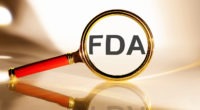US Federal Trade Commission Requests More Info in Pfizer’s Pending $43-Bn Acquisition of Seagen
The US Federal Trade Commission (FTC) has requested additional information regarding Pfizer’s pending $43-billion acquisition of Seagen, a Bothell, Washington-based bio/pharmaceutical company specializing in antibody-drug conjugates (ADCs) and drugs for oncology.
The companies first announced the acquisition in March 2023. They later received a second request for additional information from the FTC in mid July (July 2023). The companies also notified the European Commission of the pending acquisition for review by European regulatory authorities, which the European Commission acknowledged in late June (June 2023).
Seagen reported in its most filing (July 14, 2023) with the US Securities and Exchange Commission that it still expects the merger to be completed in late 2023 or early 2024, subject to the fulfillment of customary closing conditions, including receipt of required regulatory approvals
Seagen’s portfolio includes four approved medicines that are indicated across solid tumors and hematologic malignancies, including three ADCs: Adcetris (brentuximab vedotin), Padcev (enfortumab vedotin), and Tivdak (tisotumab vedotin). The company also commercializes Tukysa (tucatinib), which was approved earlier this year (January 2023) for treating certain types of colorectal cancer in combination with trastuzumab. Clinical development programs are ongoing for each of these medicines for potential new tumor types or expanded indications in earlier lines of therapy, with catalysts expected annually through 2027.
The proposed acquisition is expected to enable combination potential across both Seagen’s and Pfizer’s pipelines and to use Pfizer’s protein engineering and medicinal chemistry capabilities to advance Seagen’s ADC technology for potential new target combinations and new biologics. Seagen is also advancing technologies capable of potentially generating multiple investigational new drug applications, including new linker/payload technologies for ADCs and other antibody platforms that directly engage the immune system to destroy tumors, such as bi-specific antibodies.
At the time of the merger announcement in March (March 2023), Seagen said it expects to generate approximately $2.2 billion of revenue in 2023, representing 12% year-over-year growth, from its four in-line medicines, royalties, and collaboration and license agreements. When combining the expected growth trajectories for these medicines with candidates that could emerge from Seagen’s pipeline, subject to clinical trial and regulatory success, Pfizer said at the time of the merger announcement that it believes Seagen could contribute more than $10 billion in risk-adjusted revenues in 2030, with potential significant growth beyond 2030.
Pfizer’s oncology business has 24 approved cancer medicines that generated $12.1 billion in revenues in 2022, including therapies for metastatic breast cancer and prostate cancer. Pfizer’s in-line portfolio is focused on four broad, key areas: breast cancer, genitourinary cancer, hematology, and precision medicine, complemented by a pipeline of 33 programs in clinical development. The proposed combination with Seagen would double Pfizer’s early-stage oncology clinical pipeline.
Source: Seagen


